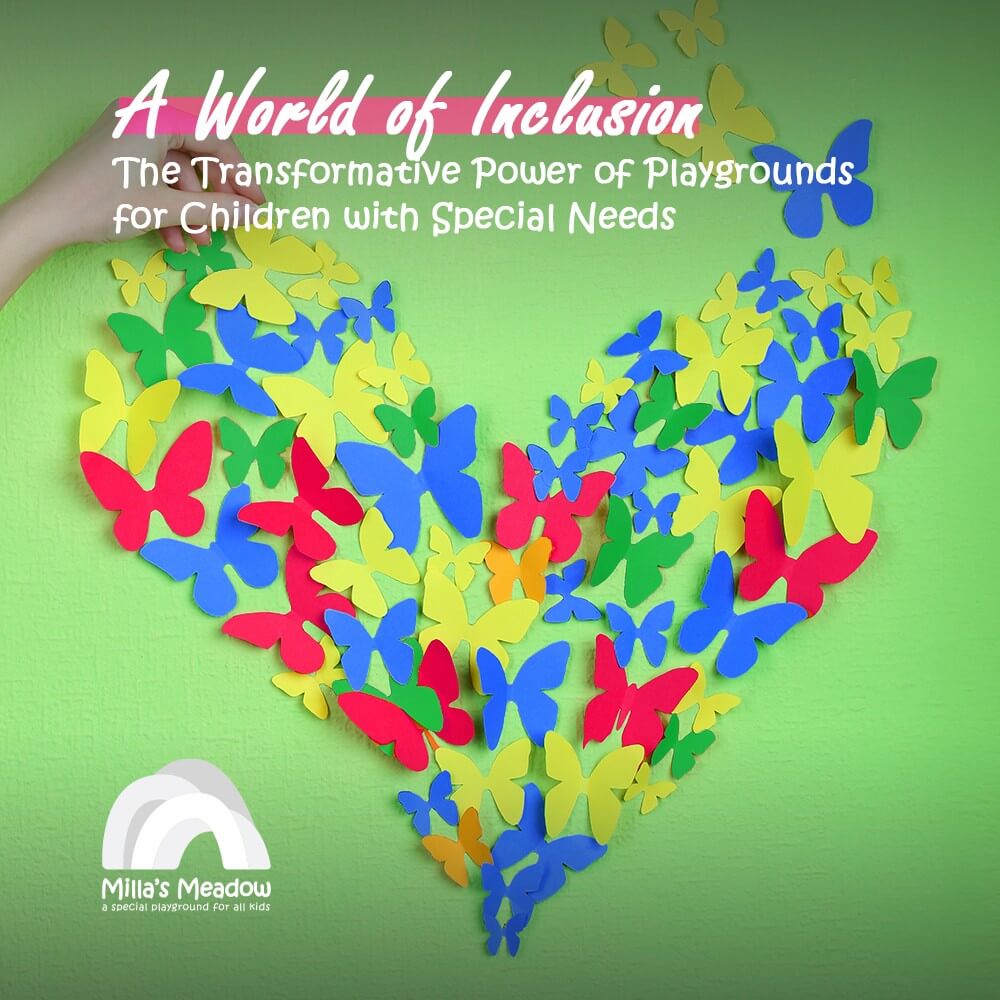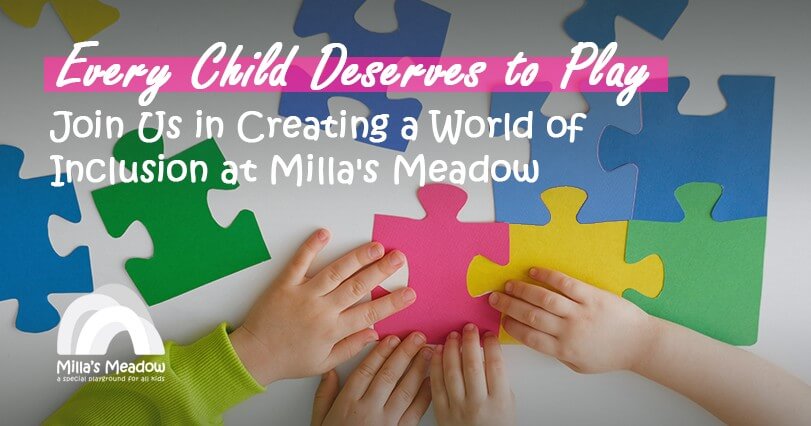In the heart of every child lies a world of curiosity and joy, a universe expansive with dreams and possibilities. Yet, for children with special needs, the journey through this world is often laden with barriers, not of their making but of a world not fully prepared to embrace their unique strengths and challenges. Milla’s Meadow represents not just a playground, but a beacon of hope—a commitment to inclusivity, education, social connections, and support, designed to empower children with disabilities to reach their full potential. This blog aims to shed light on the common conditions affecting children with special needs, their causes, symptoms, and how environments like Milla’s Meadow can significantly enhance their lives.
Understanding Special Needs: Conditions, Causes, and Symptoms
Children with special needs encompass a broad spectrum of conditions that may be cognitive, developmental, behavioral, physical, or emotional. These conditions include, but are not limited to, Down Syndrome, Autism Spectrum Disorders (ASD), Cerebral Palsy, Attention Deficit Hyperactivity Disorder (ADHD), and learning disabilities.
-
Down Syndrome
Characterized by an extra copy of chromosome 21, Down Syndrome affects physical and cognitive development. Symptoms include distinct facial features, intellectual disability, and delayed development milestones.
-
Autism Spectrum Disorders (ASD)
ASD affects communication and behavior, with symptoms often visible in early childhood. Characteristics include challenges with social skills, repetitive behaviors, and speech and nonverbal communication difficulties.
-
Cerebral Palsy
Resulting from abnormal brain development or damage to the developing brain, Cerebral Palsy affects a person’s ability to control their muscles. Symptoms range from mild to severe and may include poor coordination, stiff muscles, weak muscles, and tremors.
-
ADHD
ADHD is marked by patterns of inattention, hyperactivity, and impulsivity that interfere with functioning or development. Symptoms include difficulty sustaining attention, hyperactivity, and impulsive behavior.
-
Learning Disabilities
These disabilities encompass numerous disorders that affect the brain’s ability to receive, process, analyze, or store information, leading to challenges in learning. Symptoms vary widely depending on the type of learning disability but often involve difficulties in reading, writing, math, reasoning, recall, and problem-solving.
The Transformative Power of Inclusive Playgrounds
Inclusive playgrounds like Milla’s Meadow offer more than just play equipment; they are vital spaces that support the diverse needs of children with special needs. Here are the benefits such playgrounds provide:
-
Sensory Stimulation
Sensory playgrounds are designed to provide a unique form of stimulation through tactile, visual, auditory, and kinesthetic experiences, catering to the sensory needs of children with ASD, ADHD, and sensory processing disorders.
-
Physical Development
Custom-designed play structures support physical development, including motor skills, balance, and coordination, especially crucial for children with physical disabilities like Cerebral Palsy.
-
Social Inclusion
These playgrounds foster an environment of inclusivity, where children of all abilities can play together, promoting social interactions, understanding, and friendships.
-
Cognitive and Emotional Benefits
Play in a structured, safe environment supports cognitive development and emotional well-being, offering children with special needs the freedom to explore, learn, and express themselves without fear of judgment or exclusion.
-
Empowerment
Inclusive playgrounds empower children with disabilities, affirming their right to play, engage, and be part of a community, thus enhancing their confidence and self-esteem.

Milla’s Meadow stands as a testament to what we can achieve when we commit to building a world that celebrates every child’s abilities. It’s a call to action for communities everywhere to embrace inclusivity and support the creation of spaces that welcome children of all abilities. By understanding the needs of children with special conditions and providing environments like Milla’s Meadow, we take significant steps towards a future where every child can flourish.
In creating inclusive playgrounds, we do more than build play spaces; we weave the fabric of a community that upholds the values of acceptance, respect, and love. Join us in this noble endeavor to make the dream of Milla’s Meadow a reality, for in the heart of a child’s play lies the foundation of a more inclusive world.
FAQ
| Question | Answer |
| What are inclusive playgrounds? | Inclusive playgrounds are play spaces designed to accommodate children of all abilities, including those with special needs, ensuring access to play equipment and activities that cater to various physical, cognitive, and sensory abilities. |
| How do inclusive playgrounds benefit children with special needs? | They provide sensory stimulation, support physical and cognitive development, promote social inclusion and interactions, and enhance emotional well-being and self-esteem among children with special needs. |
| What common conditions affect children with special needs? | Conditions include Down Syndrome, Autism Spectrum Disorders, Cerebral Palsy, Attention Deficit Hyperactivity Disorder, and learning disabilities, each with unique challenges and symptoms. |
| How can communities support the creation of inclusive playgrounds? | Communities can support by advocating for inclusive design in public play spaces, fundraising, volunteering, and raising awareness about the importance of play for children with special needs. |
Similar articles
- Creating an Inclusive World of Play
- Wondering what Milla’s Meadow has in store for your child with special needs?
- Our Ambitious Goal: A Year-Round Sensory Playground
Tags/Keywords: inclusive playgrounds, special needs, Down Syndrome, Autism Spectrum Disorders, Cerebral Palsy, ADHD, sensory stimulation, physical development, social inclusion, empowerment

